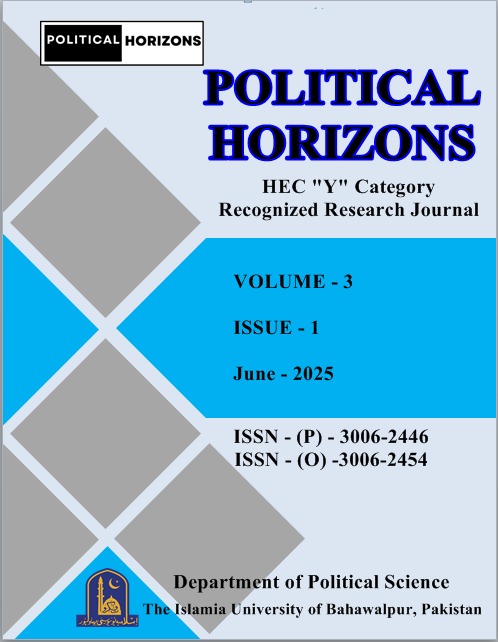The Rise of Ethnic Nationalism and Its Implications for Pakistan’s Multi-Ethnic Future
Abstract
The concept of an ethnic state and its implications for a multi-ethnic society are critical areas of study in understanding the political and social dynamics of Pakistan. Historically, Pakistan was conceived as a multi-ethnic nation, consisting of diverse linguistic, cultural, and religious groups. However, over time, the notion of an ethnic state dominated by a dominant ethnic or cultural group has raised challenges to the integrity and unity of the country. The rise of ethnic nationalism in Pakistan has been influenced by political, historical, and regional factors that have shaped the nation's trajectory since its creation in 1947. This abstract explores the complexities surrounding Pakistan's multi-ethnic identity, examining the socio-political forces that have sought to define the nation’s future along ethnic lines. The future of a multi-ethnic Pakistan depends on its ability to balance regional autonomy with national unity, address the demands of various ethnic groups, and foster an inclusive political framework. This discussion also delves into the potential outcomes of an ethnic-driven state structure and the risks of exacerbating ethnic tensions, destabilizing national cohesion, and marginalizing smaller ethnic groups. The study concludes that for Pakistan to remain a multi-ethnic society, policies that promote ethnic inclusivity, equitable allocation and distribution of resources, and respect for Pluralism and cultural diversity are essential for long-term stability and peace.
Keywords: ethnicity, Pakistan, diversity, ethnic conflict, societal integration.

Downloads
Published
How to Cite
Issue
Section
License
Copyright (c) 2025 Dr. Syed Nouman Ali Shah

This work is licensed under a Creative Commons Attribution-NonCommercial 4.0 International License.




